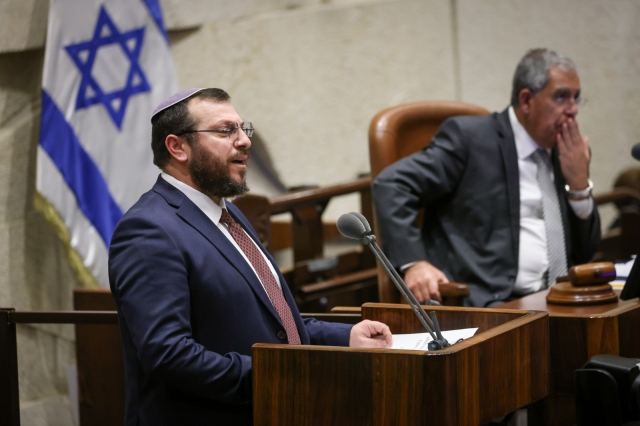Heritage Minister Rabbi Amichai Eliyahu of the Otzma Yehudit party emphasized the need for a transformative shift in the structure of the Israel Defense Forces (IDF) during an interview on Army Radio. Eliyahu made a case for transitioning from the current conscription-based model to a volunteer military system, arguing that it would enable a more effective and motivated force.
Contextualizing the Statement
Eliyahu's remarks came at a time when Israel is grappling with significant political debates. The government is enmeshed in ongoing coalition talks concerning a new draft law targeting ultra-Orthodox Israelis who engage in religious studies at yeshivas. Alongside this, the coalition is wrestling with internal divisions over whether to move forward on judicial reform—a matter exacerbated by leaked outlines earlier this week.
Draft Law and Coalition Stability
The issue of drafting ultra-Orthodox Israelis has long been a point of contention. Construction and Housing Minister Yitzhak Goldknopf raised the stakes by stating that the government's stability is contingent on passing the draft law during the Knesset’s winter session. Goldknopf further pointed out that until the draft law is enacted, all judicial reform initiatives will remain in a state of suspension.
"There's a commitment from the Likud to us that nothing else will pass until the draft law," said Yitzhak Goldknopf, adding that he had a signed guarantee of this promise.#Likud | #Coalition | #Draft | #Haredihttps://t.co/N5zk7i696h
— The Jerusalem Post (@Jerusalem_Post) September 6, 2023
Eliyahu's Core Argument
According to Eliyahu, the current IDF structure, often dubbed the 'People's Army,' has inherent inequalities. "Even if every Israeli gets drafted, there will never be equality in the IDF," the minister asserted. To rectify this, Eliyahu suggests a fundamental change: transition to a professional, volunteer-based military and discharge Israelis who opt not to serve. Such a move, in his view, would create a more focused and professional military entity, free from the controversies and inefficiencies linked to compulsory service.
IDF Chief of Staff Lt. Gen. Herzi Halevi responds to calls by hundreds teenagers to not draft to the military in protest of the judicial overhaul and Israel's control over the West Bank: "For the youth who are considering not enlisting, there is a clear statement: We will live… pic.twitter.com/kr1AMQmOZJ
— Emanuel (Mannie) Fabian (@manniefabian) September 6, 2023
Constitutional Crisis Looms
In the broader context, Eliyahu expressed his concern about the judicial system, particularly the High Court of Justice, claiming that its actions are effectively hamstringing the government. "We've entered office to promote our policies, and we can’t because both our arms and legs are tied. Government offices are paralyzed due to the High Court of Justice," he lamented. The minister argued that such judicial overreach complicates governance and constitutes a potential constitutional crisis.
Takeaways
The remarks by Minister Eliyahu spotlight the intricate challenges that Israel is currently facing on multiple fronts. While the public debate continues on whether to draft ultra-Orthodox Israelis, Eliyahu’s proposal for a professional IDF raises important questions about the future structure and effectiveness of the military. Concurrently, the deadlock over judicial reforms and the role of the High Court add another layer of complexity to the unfolding political landscape.
Herzog: Dialogue is the only solution to the "constitutional crisis" that citizens want to see end
— Agencia AJN (@AgenciaAJN) September 6, 2023
See note: https://t.co/F7Se7p553F#Israel #MiddleEast @israel @Isaac_Herzog @netanyahu pic.twitter.com/CclamobcDx
In sum, these intersecting issues not only reveal the fragility of the current coalition but also call for critical examination and substantive changes to secure the stability and effectiveness of Israel's institutions.


